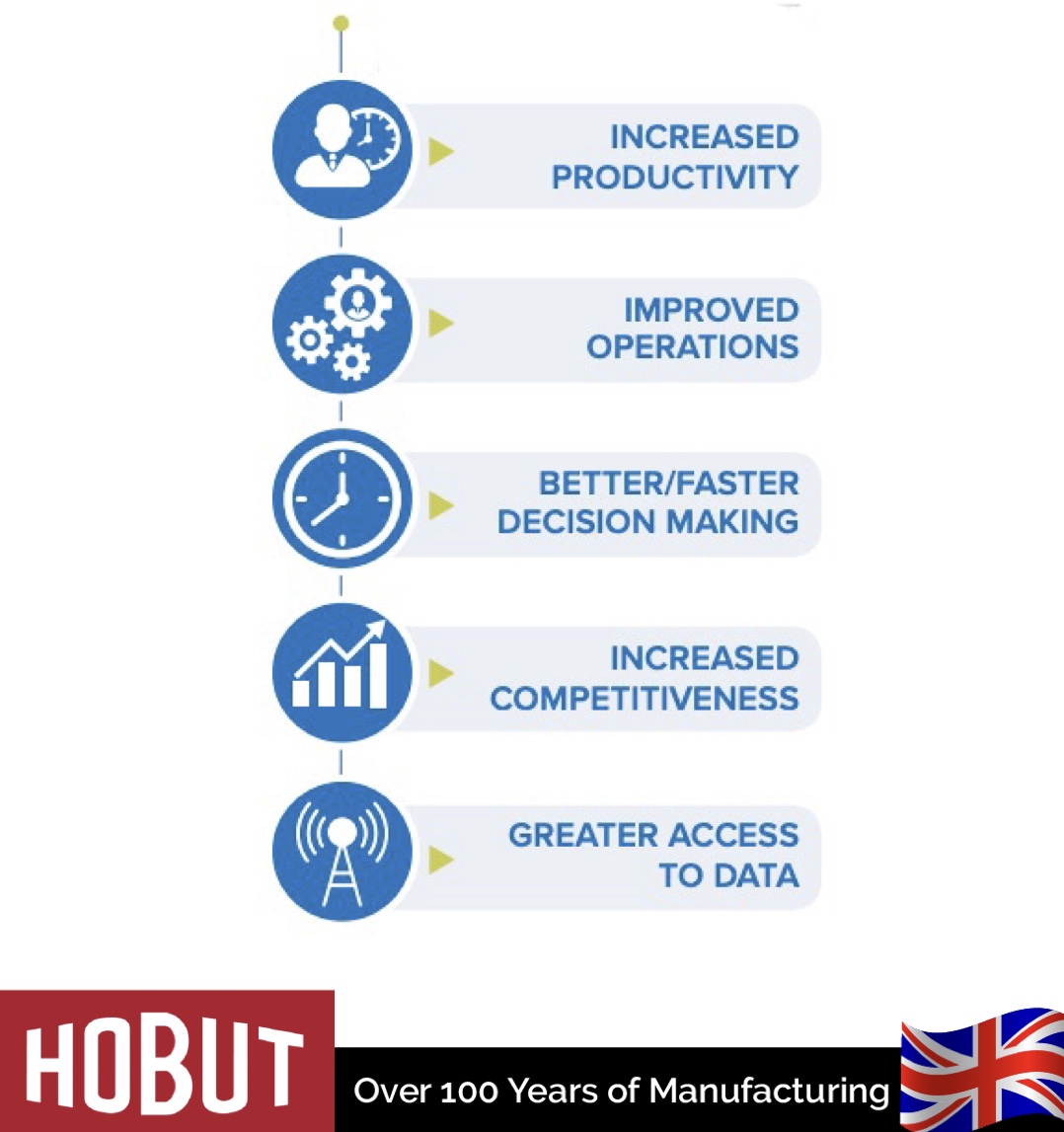Manufacturers are on the verge of an industry-wide digital transformation, with the need to improve productivity and boost visibility across the factory floor and supply chain operations.
Businesses are forging ahead to transform digitally and embrace Smart Manufacturing – which is the automation of the manufacturing sector.
There are Five main areas of transformation;
- Digitalisation of factory floor. Manufacturers such as Siemens are digitising. They were the first to launch their digital factory in Coventry, which featured a Virtual 3D factory alongside a physical production line designed to be able to mass produce customised products.
Manufacturers are equipping their factories with sensors and equipment that can collect and transmit data, which helps to streamline production and enhance operations; - Visibility across supply chain. An increased number of manufacturers now are using platforms which work with partners on production and assembly as well as reporting. This enhanced view is very desirable and heightens the collaboration with suppliers and improves the relationships with informative insights in to product design and production;
- Mass customisation. Manufacturers are being put under increasing pressure with demand to customise the production process through sharing of data. Using industrial technologies such as Computer Numerical Control (CNC) and 3D printing;
- Automation and Robotics. By replacing human workers with automated machinery, it increases workplace safety. Allowing the machines to work in hazardous or dangerous areas. Robots use voice and image recognition technology to simplify tasks and fully integrate with manufacturing systems;
- Advanced analytics. Manufacturing companies are using large volumes of data for analysis to predict operations performance, prevention of downtime and forecast patterns and demand;
The Top Five Benefits of Smart Manufacturing
Before we show you the top five benefits, we will take a look at the top barriers preventing manufacturers taking the leap of faith;
Cost – many companies believe that technology and software will prove too costly. Rather than seeing the long-term, streamlined and profitable benefits;
Lack of knowledge – there are numerous companies who believe they are ‘technophobes’ and would need considerable amount of training;
Uncertainty of benefits – Lack of understanding of the integration and what areas will be improved;
Lack of skillset – Lots believe they don’t have the necessary skills to manage the implementation;
Lack of corporate leadership – Many manufacturers believe they don’t have the required management to implement a smart factory strategy;
The image below shows the top benefits Smart Manufacturing will deliver.

The Building Blocks for Manufacturers Looking to move to a Smart Factory
A report, conducted by SME stated there were seven building blocks manufacturers should consider if they wish to move to smart manufacturing based on their business goals:
- Smart Devices. Smart devices add a layer of functionality around existing industrial control systems. Functionality allows the ability to perform necessary communication by networking with other smart devices, smart hubs/gateways to transform legacy capital equipment into smart machinery;

- Smart Interfaces. Tablets and smartphones are some of the devices allowing human-machine interfaces to improve operations and maintenance activities. Allowing remote monitoring and control of other networked smart devices and smart machinery. Both wired and wireless technologies enable device-to-device, device-to-equipment and equipment-to-equipment connectivity via smart hubs;
- Edge computing devices. These devices, such as sensors, collect data on the ‘edge’ of the network. The data is collected at source rather than in the cloud;
- Software platforms and apps. The technology is made possible through software platforms and apps providing functionality. These platforms can be available from IT software companies who can provide off-the-shelf programmes, customised solutions or even retrofit intelligence functionality;

- Data Management Systems. The collection and analysis of relevant and secure data helps manufacturers reduce costs and boost efficiency. Data management systems provide intelligent filters protocols that only share data that falls within predefined parameters to the functions that need it across the factory;
- Big Data Analytics. Big data provides advanced analytical techniques such as statistics, machine learning, artificial intelligence, condition-based maintenance, prognostics and health management to uncover and learn hidden patterns;
- Safety and Security. Safety and security is an emerging area where additional research and development is needed, allowing additional layers of protection over the system lifecycle;

Other articles you may be interested in:
The Fourth Industrial Revolution
The Future Of British Manufacturing



